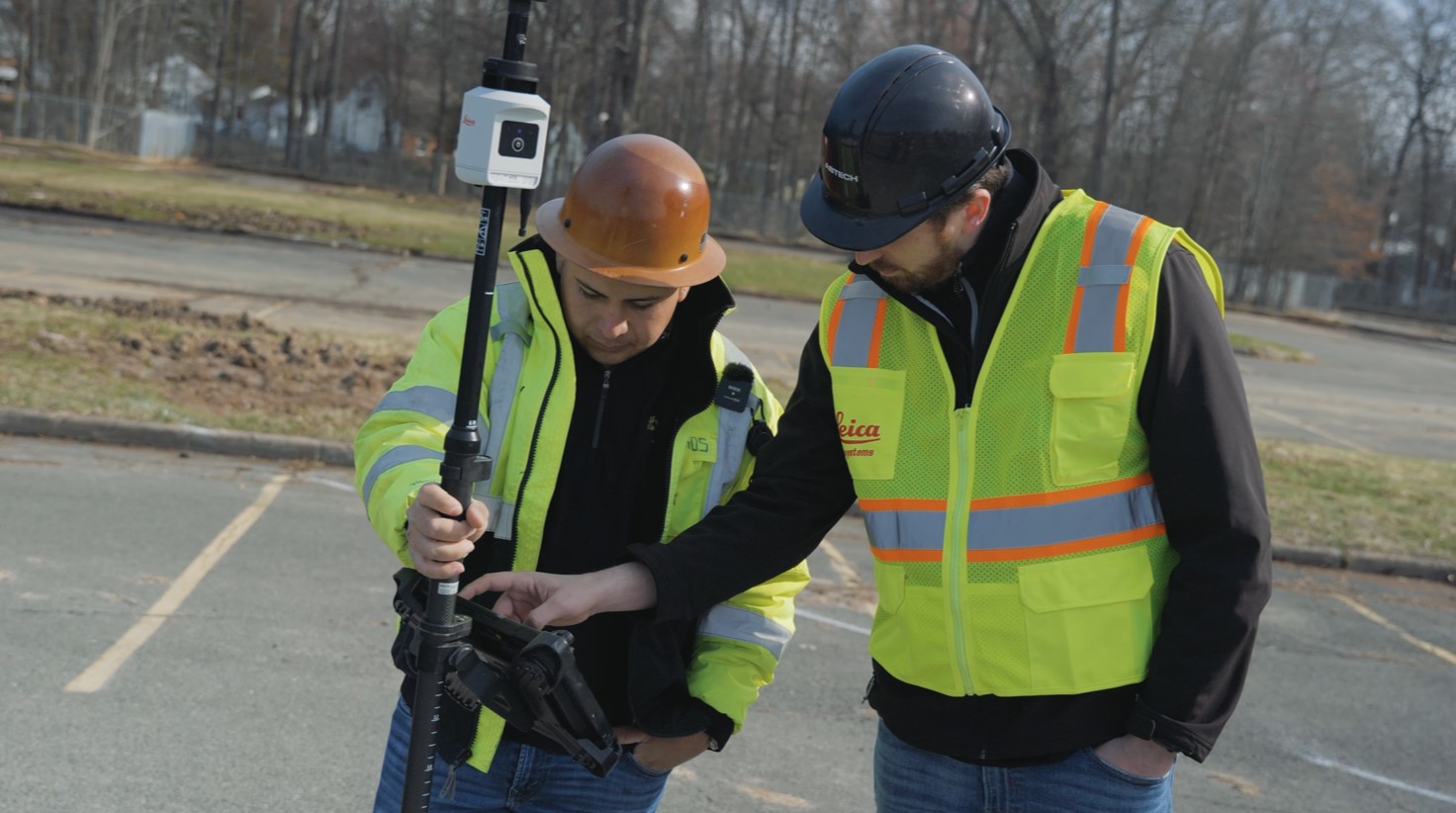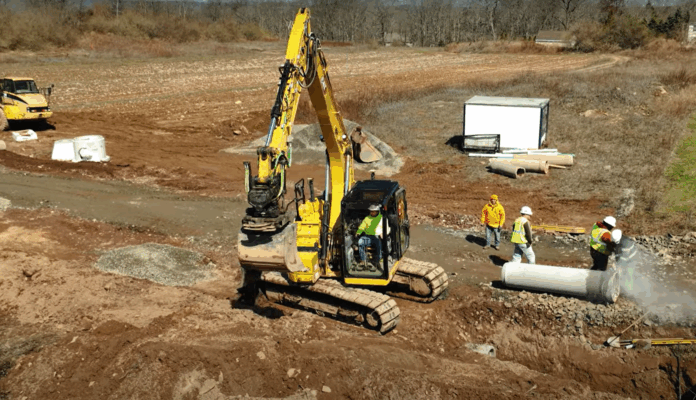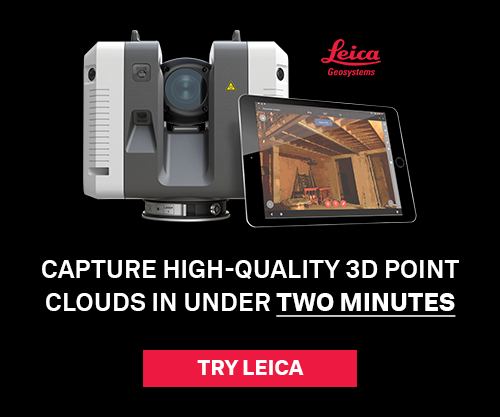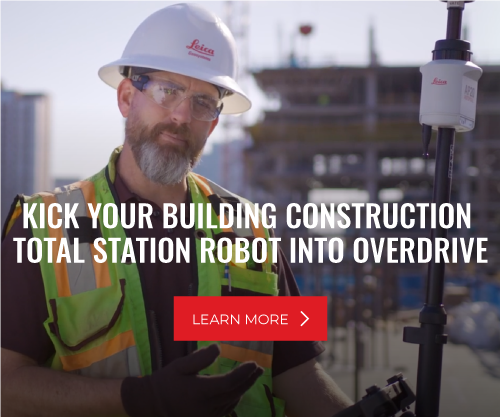Switching machine control vendors isn’t a decision contractors take lightly, but there are several reasons why it might become necessary. Costly equipment downtime, a lack of training, or an inability to adapt to your business needs are common challenges that cause many contractors to re-evaluate their options.
Whatever the reason, making a switch can open the door to better service, more reliable equipment, and long-term value for your business. However, to avoid trading one set of frustrations for another, it’s essential to evaluate potential vendors carefully. “When it comes to switching machine control vendors, you need to do your due diligence,” says Ryan Sweeney, operations director for ABTECH US, a leading technology dealer for Leica Geosystems, part of Hexagon, in the Northeastern United States.
A vendor who prioritizes interoperability and flexibility ensures that you can maximize the value of your existing investments while adopting new technologies.
Here are eight questions that can help you identify a technology partner who understands your business, supports your goals, and delivers solutions tailored to your needs.
1. Is the Technology Manufacturer Committed to Innovation?
The construction industry is evolving rapidly, with new technologies transforming project planning and execution. To remain competitive, you need to stay innovative.
Ask potential vendors about their latest advancements and how they are integrating emerging technologies, such as AI-powered automation, enhanced GPS capabilities, or intuitive software interfaces. A vendor that invests in research and development demonstrates a commitment to providing cutting-edge solutions that can help you work smarter, faster, and more efficiently.
2. Do You Have to Switch Everything All at Once?
One of the most critical factors to consider when evaluating a new machine control vendor is whether their technology integrates easily with your existing platforms and workflows. Can the new machine control solutions easily exchange data with your project management tools, 3D modeling software, or GPS systems? Is the installation a fixed part of the equipment, or can you move the system between machines in your fleet?
RELATED: Site to Slab: How Sweeney’s Technology Approach Fosters Impressive Growth
A vendor who prioritizes interoperability and flexibility ensures that you can maximize the value of your existing investments while adopting new technologies.
3. What Are the Numbers Behind Dealer Support?
To evaluate support, you need to look beyond claims. Some numbers can help you better understand the support you’ll receive as a customer. Consider whether the number of staff members devoted to support is sufficient for the number of customers and the areas they cover.
“If there isn’t adequate support staff, you will be waiting longer to get on the schedule when there is an issue,” says Tyler Sweeney, director of sales for ABTECH US.

“You should also ask the dealer for their average response time when you need assistance,” adds Ryan.
A shortage of parts can also contribute to longer downtimes. Ask the dealer which machine control parts are stocked and readily available, and how long it typically takes to get parts that need to be ordered.
4. How Does the Dealer Approach Training?
Training is one of the most valuable aspects of a machine control vendor’s service, especially if you are using a technology for the first time.
“We train our customers on their job site, installing the technology, setting up equipment, and teaching best practices,” says Ryan. “We spend as much time as needed to ensure they’re comfortable using the equipment.”
As a contractor, you should clarify exactly what training is available and what training is free of charge vs. a paid service. Down the road, you may need training for new hires or want to advance your knowledge. ABTECH US offers unlimited free training on the customer’s site, as well as free live online classes.
5. Is the Software Easy to Use?
The best way to evaluate machine control software is by using it. Request a demo if you haven’t yet had one. When software is easy to use, it’s going to take you less time to complete your tasks, and you’ll need less time training.
“The difference is in the details,” says Tyler. “Consider how easy it is to create offsets and to navigate the layout of the screen.”
Most users find the Leica machine control software very easy to use, but there’s no substitute for trying it yourself.
6. Does the Dealer Understand Your Business?
A good dealer doesn’t just sell equipment—they understand your business needs and recommend solutions tailored to your projects.
“Frequencies in particular are very important to the success of your machine control equipment,” says Tyler. Frequencies on all GPS equipment need to match, and the dealer should also know what frequency works best for range and accuracy in your region.
“Your technology dealer should be asking questions about the location where you’ll be working, the size of your jobsites, and the frequencies of your equipment. If a dealer isn’t asking those questions and having those conversations with you, that should be a red flag,” he adds.
7. How Long Will the Equipment Be Supported by the Manufacturer?
When you’re making a significant investment in equipment, you want to know that if something goes wrong, you can repair it. Manufacturers typically have product lifecycle policies that specify the dates when a product will reach EOL (End-of-Life – no longer produced or sold) and EOSL (End-of-Support – support services cease).
You can also compare manufacturer warranties on equipment and how long the dealer will support the product after your purchase. Some Leica Geosystems products, including those under the Protect by Leica Geosystems program, offer a lifetime warranty that covers defects in materials or manufacturing.
8. What Additional Needs Can the Dealer Fulfill?
Most contractors find it beneficial to minimize the number of vendors they work with. The more they can purchase from one vendor, the better. When evaluating a dealer for machine control, think about other areas where they may be able to serve you.
“Unlike dealers of other brands, Leica dealers can support our customers in any type of construction technology, including tools for underground utility detection and rail projects,” says Ryan. “We’re a one-stop shop for everything from machine control and total stations to laser equipment, safety equipment, and machine automation. This makes things a lot easier for our customers.”
While it can be difficult to decide to switch to a new machine control provider, asking the right questions will help clarify the decision and help you identify the manufacturer and dealer that has the right machine control equipment and support to meet your needs.
To speak with a heavy construction expert who can guide you on your technology journey, contact us.






